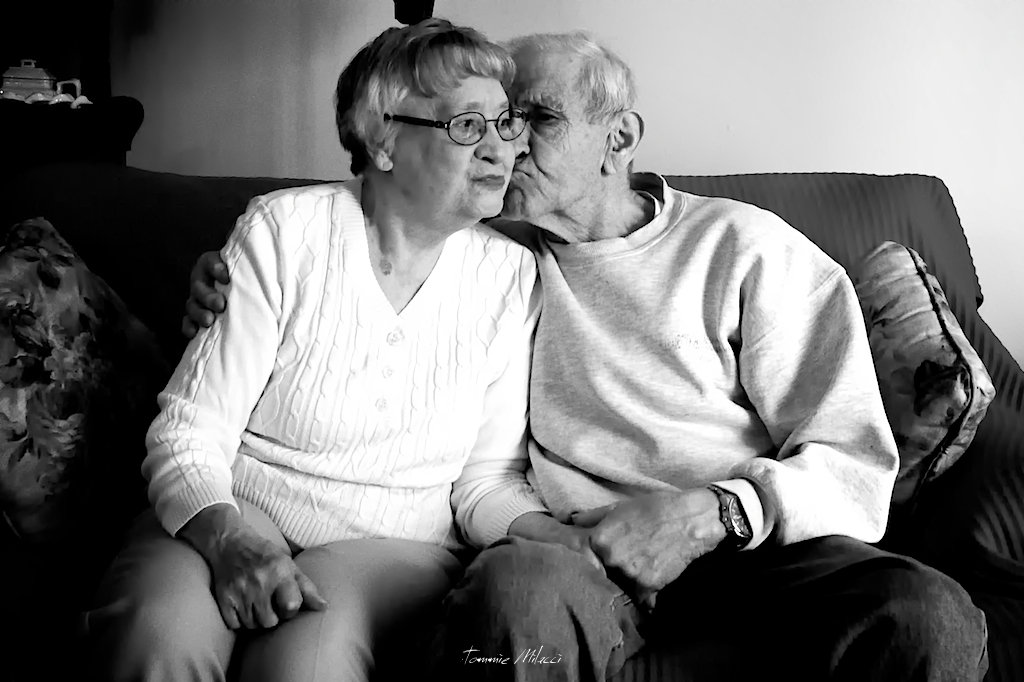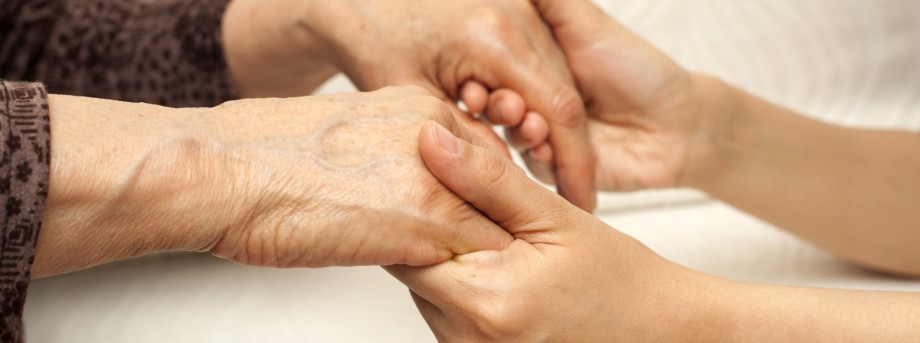Talking about sexuality and intimacy can be an awkward and, for some, taboo subject, particularly when the people we are discussing are parents or elderly relatives.
However, in a care setting, where a relative has been moved into care, sexuality, sexual needs and questions around intimacy often remain un-talked about and un-catered for, and can create an awkward situation for residents, relatives and care staff.

Image by Geraint Rowland via Creative Commons
For many people, intimacy is a ‘normal everyday’ part of life. But when moving into residential care, for many people, that is lost. They feel their privacy is taken away and their ability to conduct life as they had before needs to change as a result of moving from their home. The onset of conditions such as dementia in later life can also make other people uneasy about the idea of continuing with intimate relationships, or indeed starting new ones later in life. One of the aims of the research conducted by a team at Manchester University on older people’s understanding of sexuality (OPUS project) is to look at erotophobia, or a fear of older people’s sexuality (within the remit of feelings and beliefs on sexuality more generally).
The loss of identity through sexual expression can be even more explicitly felt by members of the LGBT community, many of whom, studies have found, have felt the need to ‘go back into the closet’ upon entering residential care.
In 2010 the World Health Organisation (WHO) published a set of sexual rights. In this the right of the individual to choice is key and something which care homes must still respect.

Image by Photoflurry via Creative Commons
Sexual rights in older people was also the subject of a report by the Royal College of Nursing who commented that “when someone moves into a care home, to all intents and purposes the private space of their room is exactly that, their private space and provided any acts are consensual care homes should facilitate the wishes of residents to the fullest extent.” Within a human rights context, adults living in residential settings, unless they have had certain rights and freedoms curtailed or restricted by the law, generally have the same basic rights and freedoms as any citizen to live their lives as they wish. This includes possibly doing things that others might consider to be unwise or inappropriate.
In addition, although many decisions about care within a care home setting are taken in consultation with the family of the resident, carers and care home managers must also remember that they have a duty to their patient, and there is a level of patient-carer confidentiality which carers should be mindful of when discussing topics such as sex, sexuality or intimacy.
However, in that context it is also the case that care home workers have a duty of care, to protect vulnerable people from abuse, exploitation and situations which they might find distressing. The International Longevity Centre have produced a guide which contains advice around intimacy and sexuality in care homes, looks at intimacy in older people, (particularly older people with dementia) and the position of people within the LGBT community who move into residential care.

Image by Photoflurry via Creative Commons
Many within the LGBT community have expressed a feeling of discrimination or anxiety about their sexuality on entering residential care and as a result there are suggestions of LGBT only residential care homes being created, with one proposed for either London or Brighton in the next few years.
The legality behind many of the decisions taken in care homes is set out in law, including definitions of consent, abuse, exploitation, violence. However, the individual practices of care homes regarding policy is often set out and implemented at the discretion of care home managers and staff and it is their responsibility to ensure that they have an effective and consistent policy in place when it comes to sexuality, intimacy and relationships more generally.

Image by Myfuture.com via Creative Commons
They also have a responsibility to ensure that staff are suitably trained to tackle any issues which may arise, answer any questions from residents or family members and recognise boundaries and levels of appropriateness while still delivering care to residents. Care workers must balance delivering effective care with promoting personal emotional and mental well being, allowing residents a level of freedom and personal choice while ensuring adequate safeguards are in place. This is not an easy task. However, more research is currently being conducted, and improved training for staff is also being increasingly offered as the norm.
Our popular Ask-a-Researcher enquiry service is one aspect of the Idox Information Service, which we provide to members in organisations across the UK to keep them informed on the latest research and evidence on public and social policy issues. To find out more on how to become a member, get in touch.
Follow us on Twitter to see what developments in public and social policy are interesting our research team.
Share
Related Posts
By Donna Gardiner While free school meals (FSM) have been available in England on a means-tested basis since 1944, recent years have seen a renewed focus upon the potential benefits of providing free school meals to all school-aged children. Currently, ....
Today sees the start of Community Garden Week 2023. Across the UK, communities will be celebrating the many and varied types of community gardens, from children’s and neighbourhood gardens to therapy gardens and allotments. The benefits of community gardens are ....
By Hollie Wilson At the start of 2020, an independent review was published setting out what needed to be done to bring about changes to the care system for children and young people in Scotland. At the heart of the ....
The “No Wrong Door” (NWD) programme means exactly that – there is no wrong door to turn to for young people seeking support. NWD works on several core principles, which include working with young people’s birth family or guardians, allowing ....
